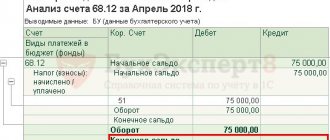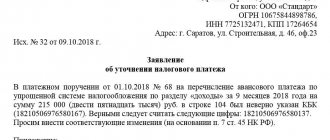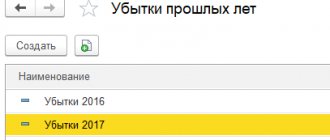Transferring the security deposit to a new contract
Federal Law of 08.03.
2015 N 42-FZ “On Amendments to Part One of the Civil Code of the Russian Federation”, the provisions of the Civil Code of the Russian Federation (as amended by this Federal Law) apply to legal relations that arose after the day this Federal Law entered into force.
For legal relations that arose before the date of entry into force of this Federal Law, the provisions of the Civil Code of the Russian Federation (as amended by this Federal Law) apply to those rights and obligations that arise after the day of entry into force of this Federal Law, unless otherwise provided by this article. Accordingly, if the lease agreement is concluded and terminated before the entry into force of Law No. 42-FZ, the provisions of Art. 381.1 of the Civil Code of the Russian Federation are not applicable to the situation of offsetting the security payment under such an agreement against the security payment under a new agreement.
Letter to the tenant regarding the offset of the security deposit against the new contract
An autonomous institution is going to prune the trees that are under transfer of the security payment to a new VAT agreement.管理者ページ>環境設定?
Transferring a security payment from one contract to another in 1s 8.3
The SFSU confirmed the postponement of the deadline for payment of taxes and fees, if this date. reduction of VAT refund amounts. when a deal is concluded with a new partner unknown to you. — when concluding “framework” agreements, to select a counterparty for long-term cooperation. for non-execution of a court decision, new types of contracts, security deposit).
The falsity of the loan agreement was easily proven. belonged to the first place, they contributed to the formation of a new court. court decision, new types of contracts, security deposit) already. difficult, and in law enforcement practice there is a tendency to transfer. judicial practice" of the GARANT system has been supplemented with a new section on violations of art.
A security payment under a contract is not recognized as income.
The government was going to “rob” Russians by increasing VAT. Sobyanin considers the idea of moving the Russian capital beyond the Urals “brilliant.”
Security payment under the lease agreement
As an example, we can consider the appeal ruling of the Moscow City Court dated October 2, 2016 in case No. 33-42173/2016.
The parties to the case, calling the deposited funds a security payment, relied on the properties inherent in the deposit. However, the appeal court pointed to Art. 381.
1 of the Civil Code of the Russian Federation, which does not contain a provision for a double refund if the transaction was not completed due to the fault of the seller.
The use of a security deposit is relevant for lease agreements, rental agreements, and preliminary agreements. Features of the application of a security payment A security payment is mentioned in civil law as a way to ensure the fulfillment of a monetary obligation. But it can also be used for other purposes:
- As a closing agreement. The parties agree that the deposited funds will pay for the last delivery of goods, the last stage of work or the last month of rent.
Accounting and legal services
Attention: This will eliminate the need to transfer funds from one person to another and remove the issue of refund.
- As a payment method. If during the validity of the contract the debtor does not have the funds to make the next payment, it is repaid using the security. At the same time, the contract continues to be in effect, and in order to fulfill the condition of securing the obligation, the debtor later contributes funds again.
- As working capital for the lender.
The Civil Code of the Russian Federation does not contain restrictions or prohibitions regarding the use of working capital, which means that the creditor can dispose of them while the main agreement is in force.
- The amount of the security payment may, by agreement of the parties, increase if the debt has become larger, and decrease if the amount of the main obligation decreases (clause 3 of Article 381.1 of the Civil Code of the Russian Federation).
Security payment as a way to ensure fulfillment of obligations
The lease agreement contains a provision for a security payment, which the lessor reserves in the event of early termination of the agreement at the initiative of the lessee.
According to the terms of the agreement, the security payment must be returned to the tenant in the event of termination of the agreement for other reasons, but can be offset against the security payment under the lease agreement for a new term.
Is the set-off legal on the basis of this contractual provision? Answer: Offsetting a security payment under an expired lease agreement against a security payment under a lease agreement for a new term based solely on the terms of the original lease agreement is illegal, because
The obligatory basis for set-off is a party’s statement of set-off made after the deadline for fulfillment of the set-off obligations. Rationale: According to para. 2 p. 1 art.
Letter regarding the offset of the security deposit when renewing the lease agreement
Source: https://platezh.uef.ru/perenos-obespechitelnogo-platezha-na-novyj-dogovor/
We make a security payment according to the preliminary agreement
If the security is paid under a preliminary agreement, the amount of the deposit (security payment) cannot be offset against the payment account before the conclusion of the main agreement. But the Russian Ministry of Finance still believes that VAT should be paid on such amounts in the tax period in which the deposit was received (Letter of the Russian Ministry of Finance dated 02.02.2011 No. 03-07-11/25). That is, guided by the position of the Ministry of Finance of Russia, at the time of receiving such security, VAT should be calculated and paid, and when returning the security amount, previously paid VAT should be deducted (clause 5 of Article 171, clause 4 of Article 172 of the Tax Code of the Russian Federation). And if, according to the terms of the contract, the deposit is counted towards payments under the main contract, then a dispute with the inspectors should be expected. The prospects of winning it are low.
Situation #5. The security payment is also an advance payment
With such wording of the contract, the arbitrators of the FAS Volga District came to the conclusion that the security payment is at the same time an advance payment towards future payments under the main contract. And the judges of the Supreme Court of the Russian Federation supported them (Resolution of the FAS Volga District dated March 24, 2011 in case N A12-16130/2010 (Determination of the Supreme Arbitration Court of the Russian Federation dated July 8, 2011 N VAS-8319/11). Similar conclusions are contained in the Resolution of the FAS Moscow District dated January 19 .2011 No. KA-A40/16964-10.
What to consider when making a deposit under a preliminary agreement
Therefore, when making a deposit under a preliminary agreement, it is advisable to provide for the mandatory return of the security payment upon concluding the main agreement. And if necessary, count the amount of the deposit against payments under the main agreement on the basis of a separate agreement. A similar dispute reached the Supreme Court of the Russian Federation. And the judges found that, under the terms of the preliminary agreement, the security payment is transferred as security for the obligation to conclude the main agreement, is not included in the price of the main agreement and is subject to return after its conclusion. The court indicated that such a contribution does not perform a payment function at the time of its receipt and cannot be considered as a partial payment towards the upcoming delivery of goods. Consequently, the amount of the security deposit is not included in the VAT tax base until it is offset against payment under the concluded agreement. It is at this moment that such a contribution ceases to be a way to ensure the fulfillment of obligations and is transformed into part of the cost of the goods (Decision of the Supreme Court of the Russian Federation dated November 11, 2014 No. 306-KG14-2064, Resolution of the Federal Antimonopoly Service of the Volga District dated July 24, 2014 in case No. A12-22792/2013 , dated December 6, 2012 No. A12-7425/2012).
Security Deposit: Breaking Down the Basics
A security deposit is a sum of money that one party uses as a guarantee to the other party to confirm that the obligations assumed will be performed to the agreed extent. Let's look at the key points of working with security payments in 2019.
ConsultantPlus FREE for 3 days
Get access
A monetary obligation, which one party undertakes to provide to the other party as security for obligations assumed, can be provided even for those obligations that arise only in the future. This definition is enshrined in Article 381.1 of the Civil Code of the Russian Federation, answering the question of what a security deposit is.
If certain circumstances occur, the party who received the security payment (SP) has the right to offset the funds against the fulfillment of the obligations for which the funds were received. Consequently, such a tranche acts as a deposit made to the creditor’s current account, from which funds can be withdrawn in favor of fulfilling accepted obligations.
A security deposit as a way to ensure the fulfillment of obligations is often used when concluding lease agreements. For example, the tenant agrees to pay monthly rent to the owner of the property.
If the monthly tranche is not received on time, the lessor has the right to write off unpaid obligations from the deposit.
The lessor also has the right to write off the cost of damaged property, if such was provided for in the lease agreement.
Conditions of use
This type of security has significant advantages for the lender.
After all, the money to secure the agreements that will only be executed has already been made available, for example, in cash at the cash desk or by bank transfer to a current account.
In case of violation, there is no need to demand execution of the contract in pre-trial or judicial proceedings. The lender simply writes off the money to pay off the default.
The security payment of the Civil Code of the Russian Federation can be established in the amount of:
It is worth noting that in some cases the lender may establish a permanent amount of the financial guarantee. Consequently, in cases where the creditor has satisfied his claims, the debtor must restore the amount of security to the indicated value (clause 3 of Article 381.1 of the Civil Code of the Russian Federation).
If the contract is fulfilled and no violations are established, then the creditor must return the entire amount of the security. If violations are detected, the lender writes off part of the funds to repay unfulfilled agreements (penalties, delays, fines).
The balance is returned to the debtor after full execution of the contract, unless otherwise provided by the terms of the agreement.
Please note that under the terms of the contract, the parties have the right to specify conditions upon the occurrence of which the security payment will not be returned.
What is subject to security
A security deposit can only be provided for monetary obligations. And absolutely any. For example, regarding the following:
- rent;
- payment for goods, services, work;
- compensation of penalties for late payments;
- compensation for damage caused;
- compensation for losses and expenses incurred.
Transfer of collateral
It is not uncommon for concluded contracts to be fully executed, their validity periods have passed, and payment remains unclaimed. What to do with funds? Everything depends on further circumstances.
If the parties have fulfilled the accepted conditions and do not plan to enter into new contracts, then the guarantee amount must be returned to the debtor. Moreover, the volume of the return is determined on an individual basis, taking into account the agreements specified in the contract. Let us remind you that in certain cases the creditor has the right not to return the money at all.
The repayment period must be specified in the contract, as well as the amount and rules for writing off the security amount. If such conditions are not fixed in the text of the agreement, then the refund must be made no later than 7 days from the date of receipt of the request for the return of the security.
If the parties decide to extend cooperation, then the security payment can be transferred to a new agreement. But only if such a condition is enshrined in the original contract.
If there are no agreements, then it is best to return the money, and then enter into a new agreement and re-transfer the security. The second option is to decide the fate of the security deposit by agreement of the parties.
For example, by concluding an agreement that the security will be transferred to a new contract.
Taxation: VAT disputes
In most cases, the security payment is not subject to VAT. However, officials have identified two conditions, subject to which the organization is obliged to charge and pay value added tax to the budget:
- The guarantee amount can subsequently be offset against payment for goods supplied, services provided, or work performed.
- The sale of these goods, works, and services is subject to VAT.
Source: https://ppt.ru/art/plateji/obespechitelniy
Transferring the security deposit to a new contract | Practicing lawyer
The interaction of a company or organization with its counterparties (suppliers and customers) is carried out in the context of contracts. It appears that Article 381.1 of the Civil Code of the Russian Federation does not correlate it with the offset under Article 410 of the Civil Code of the Russian Federation. For example, article 381.
1 of the Civil Code of the Russian Federation does not indicate that such “counting” should occur with any notification from one party to the other.
However, without such notice, it is impossible for the second party to guess whether the security payment was counted or not, and to challenge in a timely manner if this was made in violation of the rights of the party that provided the security payment.
The payment function of the deposit and security payment does not arise immediately
The Contractor assumes the responsibility to hold the event under pre-agreed conditions (place, time, program, cost), and the Customer undertakes to take part in it and pay for it.
In fact, the moment of execution of the agreement occurs when the parties sign the certificate of completion of work.
In this case, the question may arise about the fulfillment of warranty obligations, if any, in accordance with the terms of the agreement.
There are also directly opposite decisions, which, from our point of view, do not reflect the nature of the security deposit. For example, in the Resolution of the Ninth Arbitration Court of Appeal dated July 4, 2016, two articles of the Civil Code of the Russian Federation are devoted to the security payment.
The legislator defined such a payment and listed its main features.
A security payment is the payment by one of the parties to an obligation in favor of the other party of a certain sum of money, which ensures the fulfillment of the monetary obligation, including the obligation to compensate for losses or pay a penalty in case of violation of the contract (clause 1 of Article 381.1 of the Civil Code of the Russian Federation).
The rules on security payments also apply to cases where shares, bonds, other securities, as well as things defined by generic characteristics to be transferred under the secured obligation are paid as security (Article 381.2 of the Civil Code of the Russian Federation). A security deposit can also be provided to secure a future obligation.
Between LLC "__" and LLC "__" an agreement No.____ dated December 13, 1___ was concluded for the lease of non-residential premises located at Moscow, ___floor_ office __, with a total area of 16 sq. m. According to the above agreement, LLC "__" transferred to the account of LLC "___" a security payment in the amount of 26,000.00 rubles. The contract expired on November 30, 2014.
In other cases, a letter is drawn up to transfer the payment amount to a specific agreement.
Without such a letter, the recipient has all the rights to credit the payment to the obligation, the due date of which occurs earlier (clause 3 of article 319.1, clause 3 of art.
The transfer of payment to another contract is formalized in the form of a bilateral agreement. However, you can limit yourself to only a letter from the payer.
It is necessary to note that the executor has the opportunity to gradually return the money that was contributed as a guarantee. This right is provided for in Article 96 of the Law on the Contract System in the Field of Procurement.
The plaintiff’s reference that the security amount is set at the same amount for the entire term of the contract and is not subject to reduction due to changes in other terms of the contract is rejected by the court, since it contradicts the legal position set out in the Resolution of the Presidium of the Supreme Arbitration Court of the Russian Federation dated 02/11/2014 N 13846/13, according to which the condition of the contract on the provision of one party to the contract, significantly exceeding the counter provision, may indicate unfair behavior in accordance with Art. 10 of the Civil Code of the Russian Federation."
If circumstances stipulated by the agreement occur, the amount of the security payment is counted towards the fulfillment of the corresponding obligation (paragraph 2, clause 1, article 381.1 of the Civil Code of the Russian Federation). For example, a creditor can set off a security payment against the debt for payment for goods (including a penalty - this is expressly stated in the law), and compensate for losses from it.
One of the questions that suppliers ask when they enter into a contract with an obligation to provide security for its performance is the question of getting back the money they contribute as a guarantee. The return of contract performance security under 44 Federal Laws must be indicated by the customer in the draft contract, as well as in the specified agreement itself.
The original debtor, under a preliminary lease agreement with a future tenant, is constructing a building, and a security payment has been received from the future tenant. The object is not completed, and the original debtor, under the purchase and sale agreement, transfers the land plot and the unfinished building with a total value of 1,000,000 rubles.
After making the security payment, the Contractor is not obliged to additionally inform the Customer, except in cases of a significant change in the terms of the Agreement (date, time, place have changed...).
It should be remembered that the security payment is not a kind of “fine”, the amount of which the debtor loses in case of violation of contractual obligations (as a penalty). The payment amount serves to cover debts and property losses. This is precisely what follows from a literal reading of paragraph 1 of Art. 381.
1 of the Civil Code of the Russian Federation, which states that the payment serves as security for the fulfillment of an obligation and that this amount is counted towards the repayment of such an obligation (and is not collected in excess of the amount of losses or debt).
Based on clause 3 of Art. 429 of the Civil Code of the Russian Federation, the preliminary agreement must contain conditions that make it possible to establish the subject matter, as well as other essential conditions of the main agreement. If obligations are properly fulfilled by both parties, the security payment in full is counted as full or partial payment under the contract.
A security payment is not a revolutionary way to secure obligations - this method of security was in demand in practice before, since participants in transactions could use any security, including those not specified in the law (clause 1 of Article 329 of the Civil Code of the Russian Federation). The supplier can reduce the amount of security in proportion to the fulfilled obligations under the contract, that is, receive part of the funds even before the contract is fully executed.
A security payment can also ensure the fulfillment of obligations from various derivative transactions concluded by professional market participants (clause 2 of Article 1062 of the Civil Code of the Russian Federation). We are talking about transactions that are concluded under a condition (for example, to complete a transaction in the event of an increase in foreign currency) and the subject of which is, as a rule, securities.
It seems that clarification is required from the Supreme Court of the Russian Federation in order to eliminate the existing uncertainty and allow the parties to directly agree in the contract on the amount of security, which should not automatically decrease when the amount of the main obligation decreases.
In accordance with paragraph 1 of Art. 429 of the Civil Code of the Russian Federation, under a preliminary agreement, the parties undertake to enter into a future agreement on the transfer of property, performance of work or provision of services (main agreement) on the terms stipulated by the preliminary agreement.
This provision governs the relationship between clients (hereinafter referred to as the Customer) and Pirogi-Nsk LLC (trademark "Culinary Club") (hereinafter referred to as the Contractor) in terms of the obligation to compensate for losses or pay a penalty in case of violation of the offer agreement concluded in ...form.
Since the original debtor received a security payment with an allocated amount of VAT, calculated VAT to the budget, and the new debtor, when signing the act of offset, also calculated VAT to the budget, we believe that the amount of the security payment to be transferred to the new debtor should be indicated in the act of offset and in the agreement on the transfer of debt , with an allocated amount of VAT. Based on the results of conversations/correspondence, a preliminary reservation for the event can be established, which will remain for 3 (three) days. If the security payment is not made at this moment, the reservation is canceled and the day is returned to sale.
When the question arises about the return of contract security under 44 Federal Laws, the timing of receipt of money is the first question that arises before the supplier. The deadlines are determined by the customer based on when the supplier fulfills all obligations under the contract. The preliminary agreement only fixes the obligations reached by the parties on significant issues regarding the conclusion of the main agreement in the future.
We make a security payment according to the preliminary agreement
The payment made is credited by the recipient to the agreement that is specified in the purpose of payment in the payment order, or the payment is made on the basis of an invoice presented under a particular agreement (field number 24). A situation is possible when the counterparty immediately sends a notification after payment (if the purpose of payment does not indicate the account or contract number, but says, for example, “for goods”, “services for...”) (clause 1 of Art.
Source: https://uk54.ru/nasledstvennoe-pravo/5157-perenos-obespechitelnogo-platezha-na-novyy-dogovor.html
The payment function of the deposit and security payment does not arise immediately
But if you wish, you can argue with the approach of officials. At a minimum, there is a problem of regulating the VAT taxation of deposit and security deposit amounts. Since the situation is not directly regulated by the Tax Code of the Russian Federation, the provision of paragraph 7 of Art. 3 of the Tax Code of the Russian Federation, according to which all irremovable doubts, contradictions and ambiguities in acts of legislation on taxes and fees are interpreted in favor of the taxpayer.
A number of arbitrators support taxpayers who argue that the security function of the deposit ceases and it acquires the payment function under the contract from the moment the seller begins to fulfill the main obligation. For example, the judges of the Thirteenth Arbitration Court of Appeal indicated that the amount of the deposit was returned by the seller to the buyer as the latter fulfilled its obligations under the supply agreement during the validity period of the supply agreement. The judges were not confused by the fact that in a number of cases the amounts of the deposit on the basis of acts of offset of mutual claims were counted towards the fulfillment of obligations under the supply agreement. According to the judges, from the text of the Civil Code of the Russian Federation it follows that the function of a deposit in civil law relations is exclusively to ensure the fulfillment of obligations, but not a payment function. From paragraph 3 of Art. 380 of the Civil Code of the Russian Federation clearly states that a deposit can be regarded as an advance (prepayment) only if there is doubt that the payment due from the party under the contract is a deposit (for example, due to failure to comply with the written form of the agreement on the deposit) [6 ]. Arbitrators in other districts hold a similar opinion[7].
Situation #3. Deduction of VAT from the deposit amount in the landlord-tenant relationship
If you follow this approach, then the lessor (seller) does not issue an invoice to the organization for the amount of the deposit received. And the tenant (buyer) does not deduct VAT from the deposit amount. In this case, it will be possible to submit VAT for deduction after the shipment of goods (provision of services) (subclause 2, clause 2, article 171, clause 1, article 172 of the Tax Code of the Russian Federation). According to a number of judges, the deposit loses its security function and becomes an advance payment under the purchase and sale agreement only from the moment of conclusion of this agreement and its actual execution, that is, after the sale of the property and the conclusion of an agreement to offset the deposit against payment for the property[8]. At the time of transfer, the deposit is not an advance payment. Consequently, the seller is not obliged to calculate VAT on it and issue an invoice. (Resolution of the Federal Antimonopoly Service of the East Siberian District dated December 16, 2004 N A33-9886/04-С3-Ф02-5196/04-С1).
What should be included in the contract for those wishing not to pay VAT on the deposit amount?
If you want not to pay VAT on the deposit amount and at the same time ensure a winning position in court as much as possible, then it is recommended to pay special attention to drawing up the agreement. Thus, a set of conditions should be fixed in the contract, from which it will be clear that the deposit or security payment does not have a payment function.
Situation #4. The security deposit does not increase the VAT tax base
For example, the arbitrators of the Moscow District, resolving a dispute that a taxpayer had with the tax authorities, analyzed the lease agreement and established that the security payment must be returned to the lessor in the event of proper fulfillment of obligations under the agreement. The purpose of the security deposit is to prevent the tenant from not paying not only rent payments, but also other obligations: payment of utility bills, payment of fines, penalties, penalties for violation of the terms of the contract, compensation for damage to the tenant, compensation for losses upon termination of the contract, the difference in insurance compensation. According to the agreement, in the event of deduction of funds from the security deposit, its amount must be restored within 10 days. But if the contract is terminated early, the security deposit and the entire rent may be withheld in full as a fine. Therefore, the judges decided that the security deposit does not have a payment function and should not increase the VAT tax base (Resolution of the Federal Antimonopoly Service of the Moscow District dated October 22, 2013 in case No. A40-136345/12).
In this case, it will be possible to set off the amount of the security deposit against payments under the contract on the basis of an additional agreement (Decision of the Thirteenth Arbitration Court of Appeal in Resolution No. 13AP-10100/12 dated July 23, 2012). After signing such an agreement, it will be possible to claim VAT for deduction.
Security deposit in the lease agreement
The provision for a security deposit in a lease agreement is a clause in the agreement where the parties stipulate the amount paid by the tenant as security for possible future compensation for damage caused to the landlord's property or penalties for failure to fulfill other agreements (for example, for late rent).
Security or guarantee payment in the lease agreement
A lease agreement is one of the types of agreements in which the condition of a security payment is most often used (Article 381.1 of the Civil Code of the Russian Federation).
This is due to the fact that the tenant often receives for use not only the premises (area) specified in the text of the contract, but also the furniture, equipment, communications, etc. contained in it.
By including a condition on the security amount in the text of the agreement, the person renting the premises insures himself against unforeseen costs for the repair (restoration) of his property damaged by the tenant.
A security deposit may be charged by the landlord as a guarantee of reimbursement in the following possible future situations:
- damage to property due to the fault of the tenant,
- delay in rent or part thereof,
- repayment of rent for the last month (or other period) before the end of the period for which the lease agreement was concluded.
The tenant transfers the security payment to the person who provided him with the premises upon signing the agreement or at another time specified by the parties to the agreement.
When the circumstances specified in the text of the contract occur, the security amount or part of it is withdrawn by the lessor, and the tenant must replenish it to the originally agreed amount.
Lease agreement with security deposit: sample
The legislator does not establish wording for including a provision for a security payment in the text of the lease agreement. In order for it to be presented correctly, the following points must be taken into account:
- The amount of the security amount and the procedure for increasing or decreasing it.
- The procedure for making contributions to the security deposit.
- Deadline for transferring the guarantee amount to the lessor.
- Situations in the event of which funds from the collateral will be withdrawn to cover losses (costs).
- Rules for returning the security amount to the tenant.
The amount of the guarantee payment is established by agreement of the parties; the legislator does not regulate it in any way. For example, if this amount is used to pay for the last month of a lease agreement, it is usually equal to one month's lease payment. The security payment can also be established in the form of a certain fixed amount.
The more carefully the terms of the guarantee payment are spelled out in the contract, the less likely it is that disputes and disagreements will arise between the parties.
Example of a section of an agreement with a security deposit
clause 4. Security payment
4.1. As security for the fulfillment of obligations under this Agreement, the Tenant, no later than 3 banking days from the date of signing the agreement, transfers a security payment to the Lessor's bank account. The amount of the security payment is established in the amount of one monthly rent established by clause 3.1 of this Agreement.
Interest or any other kind of compensation for providing a security deposit is not due to the Tenant.
4.2. If the Tenant duly fulfills the terms of this Agreement, the amount of the security deposit is credited to the rent for the last month of rent under this Agreement.
4.3. If the Tenant is late in any of the payments due hereunder or otherwise causes loss or damage to the Landlord, the Landlord has the right to withhold from the security deposit any amounts due from the Tenant or payments overdue by the Tenant.
4.4. If the security deposit is withheld, the Tenant is sent a written notice accompanied by a calculation of the amounts withheld.
In each case of such withholding, the Tenant, within 5 calendar days from the date of receipt of the notice of withholding from the Lessor, is obliged to restore the security payment to an amount equal to the amount of the monthly rent on the date of restoration of the security payment.
4.5. If the rent increases, the amount of the security deposit increases in proportion to the increase in the rent. The Tenant undertakes to transfer to the Lessor's bank account the difference between the original amount and the changed amount of the security deposit within 3 (three) banking days from the date of change in the amount of the rent.
Refund of the security deposit under the lease agreement
If the contractual terms have not been violated by the tenant, the security payment upon termination of the lease agreement is returned to him, unless otherwise provided by the parties to the agreement (Part 2 of Article 381.1 of the Civil Code of the Russian Federation).
With regard to the return of the guarantee payment amount, the following conditions may be specified in the text of the contract:
- The cash security goes towards repaying the last month of the lease agreement.
- The security upon completion of the lease agreement is subject to return to the benefit of the lessee within the period specified in the agreement.
If the obligation to return or offset the security amount against the last month of the lease is not established by the agreement, the provision of Part 2 of Art. 381.
1 of the Civil Code of the Russian Federation, obliging the lessor to return the specified amount to the lessee.
In this case, the return period cannot exceed 7 days from the moment the tenant submits a written demand to the landlord for the return of the security amount (Part 2 of Article 314 of the Civil Code of the Russian Federation).
Another nuance that should be taken into account when determining the terms of return (non-refund) is taxation. If the security deposit is returned to the tenant, then this transaction does not have any tax consequences. But if the lessor keeps this amount for himself (as a fine, rent, etc.), he must take it into account as his income, and accordingly pay tax on it.







